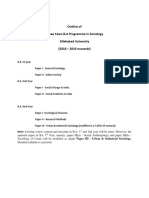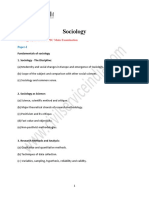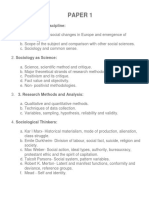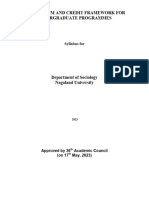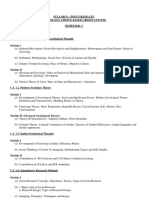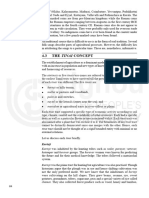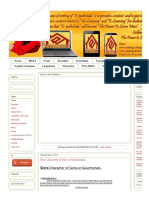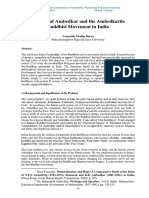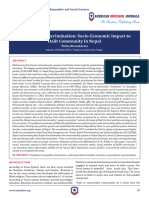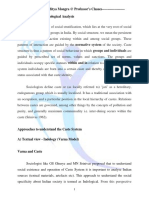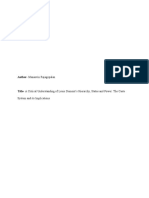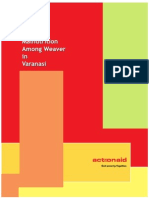0% found this document useful (0 votes)
76 views7 pagesSOCIOLOGY
The document outlines the syllabus for a Bachelor of Arts degree in sociology across three parts (I, II, and III). It covers topics such as the foundations of sociology, Indian society, sociological thought, and social change and development in India. Key concepts discussed include social institutions, stratification, rural and urban social structures, marriage and family systems, and theoretical perspectives on modernization and globalization. Prescribed readings provide further resources on each paper's subject matter.
Uploaded by
jnvyaariyanCopyright
© © All Rights Reserved
We take content rights seriously. If you suspect this is your content, claim it here.
Available Formats
Download as PDF, TXT or read online on Scribd
0% found this document useful (0 votes)
76 views7 pagesSOCIOLOGY
The document outlines the syllabus for a Bachelor of Arts degree in sociology across three parts (I, II, and III). It covers topics such as the foundations of sociology, Indian society, sociological thought, and social change and development in India. Key concepts discussed include social institutions, stratification, rural and urban social structures, marriage and family systems, and theoretical perspectives on modernization and globalization. Prescribed readings provide further resources on each paper's subject matter.
Uploaded by
jnvyaariyanCopyright
© © All Rights Reserved
We take content rights seriously. If you suspect this is your content, claim it here.
Available Formats
Download as PDF, TXT or read online on Scribd
/ 7





